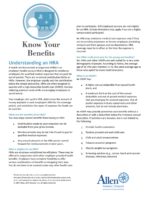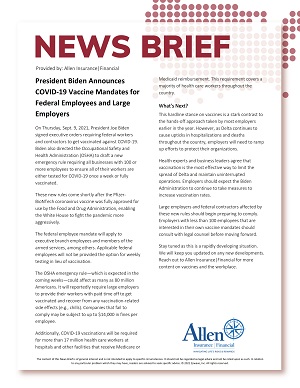Cale Pickford, Allen Insurance and Financial
for Maine REALTOR Magazine
If the past 20 months or so have taught us anything, it is that the one thing we can count on is the fact that we cannot count on anything. It seems as if March 2020 marks a demarcation line, the BCE and CE of our millennia.
Many whose fortunes are tied to the real estate market have done exceedingly well. An equal number of business owners continue to struggle to find employees and products needed to do their work. One family after another has recognized the virtues of life in Maine and, often supported by the realized promise of remote work, have moved to Maine to begin a new chapter of their lives.
The result is an increase in estate prices − up by as much as 35% in some locations − pushing the dream of home ownership out of the reach of many of our fellow Mainers. While there are many causes for economic and public health concern and anxiety, Maine seems poised for continued growth and prosperity.
Through it all, our real estate professionals continue to guide buyers and seller alike through a market that is unlike any other. No two buyer or seller situations are the same and the role that the professional real estate agent plays has never been more important. Knowing that your role extends well beyond the actual real estate transaction, the following represents my top three considerations impacting the insurance industry as we venture toward the early months of 2022.
FEMA Flood Risk Rating 2.0: Remember way back when flood insurance was rated by those confusing combinations of letters that seemed like they were an acronym but really were not? VE, AE, A1, B, C, and X have all been done away with, at least as they relate to the pricing of flood insurance. These designations still apply to construction ordinance and insurance requirements for mortgages, but they are no longer used in the rating of flood insurance. Enter Risk Rating 2.0, where FEMA will no longer use flood zones to calculate flood insurance rates. Instead, an individual property’s risk will be used: Foundation type, elevation, structure replacement cost, the frequency of a variety of flood types, and the distance to water, among others. In a stark departure from the past, FEMA has decided to apply actuarial data, common sense and modern technology to the rating of flood insurance.
While major changes are rarely good for everyone affected, it does appear that Maine will see one of the largest average decreases of flood insurance premiums in the country. In fact, New England homeowners, in general, will make out the best with RISK rating 2.0, while Florida, Louisiana, New Jersey, and North Carolina will see the largest increases. Another benefit is that insurance agents will have a much easier time of quoting flood insurance so be sure to reach out to an independent agent to get a quote for sellers and buyers alike.
Increased Cost of Construction: Inflation has crept into just about every sector of the economy, but it seems like no sector has been impacted more dramatically than the construction industry. Unprecedented demand, material shortages and thin labor pools have all driven the cost to build, repair or remodel far higher, assuming you can even find a contractor to do the work. Property insurance is squarely impacted by construction costs. Insurance agents use a variety of software products to estimate the replacement cost of a home, or the cost to rebuild the entire structure, including costs associated with demolition and debris removal. In many instances, these estimating tools have not kept up with the cost increases on the ground, leaving property owners at the risk of being under-insured. In addition to working with replacement cost values that accurately reflect today’s costs, homeowners should look for a homeowners insurance policy where the cost to rebuild is not directly capped by the limit of coverage. Extended replacement cost policies will provide up to 25% to 100% more than the limit of dwelling coverage, while guaranteed replacement costs policies have no cap.
Climate Change and Severe Weather: Some days it seems as if every single news cycle includes stories about a new catastrophic weather event. Wildfires, hurricanes, tornados, droughts and unprecedented rainstorms are impacting every part of our country. It may feel as if Maine is insulated from the worst of these increasingly severe events, but many indicators show Maine climate change as among the fastest in the country and with that change, we can expect more and more severe weather events. Understandably, insurance accessibility and affordability are directly impacted by the billions of dollars paid out to rebuild following these storms. For now, Maine continues to be looked upon favorably by insurance underwriters but in certain parts of the country, access to affordable insurance is having a dramatic impact on the real estate market. Insurance costs are going up in Maine, as well, as insurers look to squeeze more premium out of states that perform well as a strategy to make up for losses in other regions. Reinsurance, the insurance that insurers buy to offset the risk of large losses, is also getting more expensive, further increasing costs on the retail level. Especially buyers of high value, rural or island homes should be looking to start early on the insurance shopping process, as there will be fewer options and those that exist will be more expensive than in years past.
The role of the real estate agent has never been more important. The idea that your profession might be replaced by a website’s algorithm and artificial intelligence is laughable, especially when viewed in the light of today’s market. Your ability to guide a buyer and seller through the emotional ups and downs of the transaction is just as important as your ability to anticipate challenges and recommend professional resources and advisors who add value to your relationship. Make sure that insurance considerations are on your list and that your approach your deals this year and into the next.













